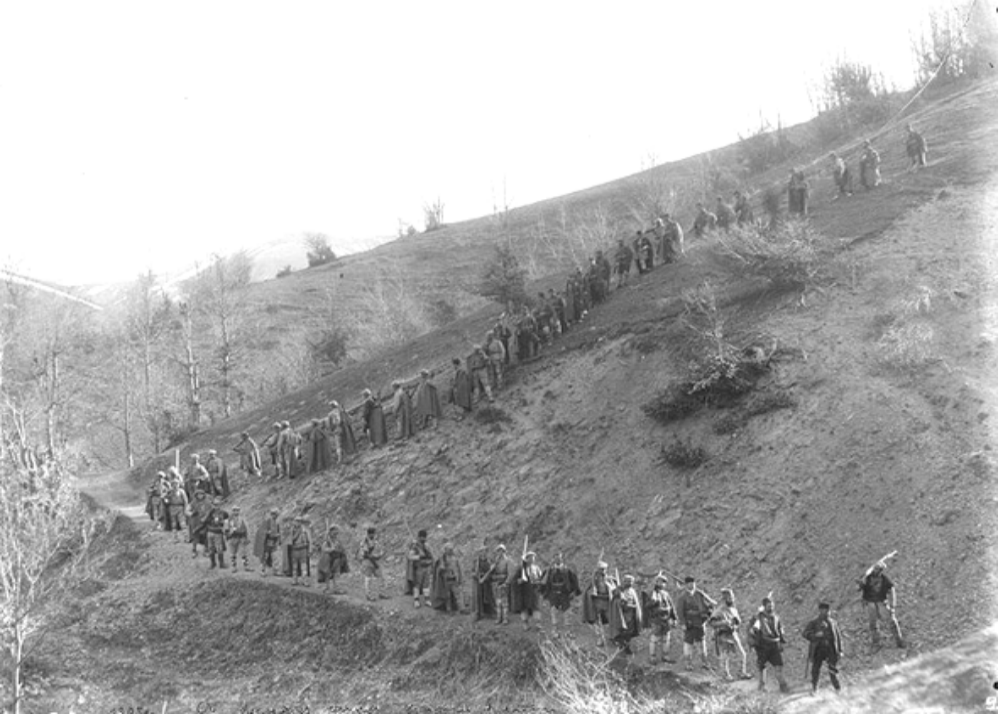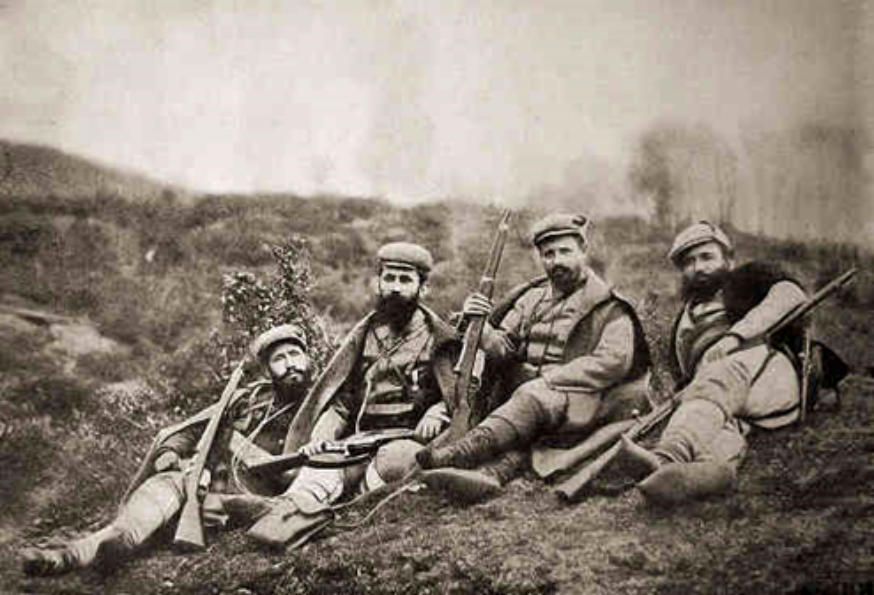The life story of Efrem Chuchkov, one of many forgotten heroes in Bulgarian history, is like a movie. His great-grandson Yavor Chuchkov told us about it when he contacted Radio Bulgaria on the occasion of the 150th anniversary of the birth of his great-grandfather, who gave his life for the freedom of Macedonia. "But first let's clarify the concept of a Macedonian. Just like hundreds of thousands of our compatriots, I am also Macedonian. And this has always meant a Bulgarian from the geographical area of Macedonia. Of course, my great-grandfather was also a Bulgarian from Macedonia," Yavor Chuchkov says and adds:
"Macedonia was under Ottoman yoke until 1913 and Bulgaria was liberated in 1878 through Russia's victory in the war with Turkey. These were about 35 additional years of ‘endless horrors’, as defined by Dame Gruev. Efrem Chuchkov fought against Turkish yoke in Macedonia. At the beginning of 1898, he became the first voivode of the Chetnik Institute of Bulgarian Internal Macedonian-Adrianople Revolutionary Organisation, founded by Gotse Delchev.”
During the Balkan War in 1912, with his group of several hundred men, Efrem Chuchkov liberated Shtip, Kocani and the whole Shtip region, capturing hundreds of Turkish soldiers.

Knowing that the Serbian army was moving towards Shtip, he established an improvised Bulgarian rule and decided to deceive the Serbs by sending his men to the Kingdom of Bulgaria to bring back 300 Bulgarian military overcoats. They were given to the local Bulgarians. The Serbs stopped their advance, because from the surrounding hills they saw people in uniforms of the Bulgarian army walking in the city.
And in order to be even more convincing, the voivode sent the Serbs a written "notification" that Bulgarian regular military units had entered Shtip and a Bulgarian military commandant's office had been established. In order to "legalize" the document, he heated a Bulgarian silver coin and pressed it on the paper with his signature. That is how in his letter to the Serbian command a vague image of a seal was seen and it did the job.

Meanwhile, the ardent voivode sent a written request to the Bulgarian rulers to send regular army units as reinforcements so that the area would not be occupied by the Serbs. But the answer that came from the Kingdom of Bulgaria was: "We will not send any soldiers to you! Immediately send your forces to capture Tsarigrad!“
After World War I, Macedonia was occupied by Serbia. True to his cause in life, Chuchkov refused to accept any high positions in the Kingdom of Bulgaria and went to war with his detachment against the Serbian occupation of Macedonia. But after a series of unequal battles against numerous units of the Serbian army, the hero was severely wounded. Sick and broken by the hardships of life, he died in Sofia on October 1, 1923.
Today Efrem Chuchkov is little known in Bulgaria. And despite the fact there is a street in Sofia named after him, his biography remains almost unknown.
Author: Veneta Nikolova
English: Alexander Markov
Photos: Yavor Chuchkov’s archive
Trapezitsa is one of the three hills for which the old Bulgarian capital, Tarnovgrad (the medieval name of today’s Veliko Tarnovo), is famous . Located to the northwest of the town, it stands across from the neighboring hill Tsarevets – the site where,..
On the feast of the Dormition of Saint Ivan Rilski, the Bulgarian Patriarch and Metropolitan of Sofia Daniil led the Divine Liturgy at the Rila Monastery. On the eve of the feast, he bowed before the relics of the patron saint of the Bulgarian people..
Today, August 18, the Bulgarian Orthodox Church marks the Dormition of St. John of Rila – the heavenly patron of Bulgaria. He is the most beloved saint in Bulgaria and is revered even beyond the borders of this country. We associate..
Trapezitsa is one of the three hills for which the old Bulgarian capital, Tarnovgrad (the medieval name of today’s Veliko Tarnovo), is famous . Located..

+359 2 9336 661
